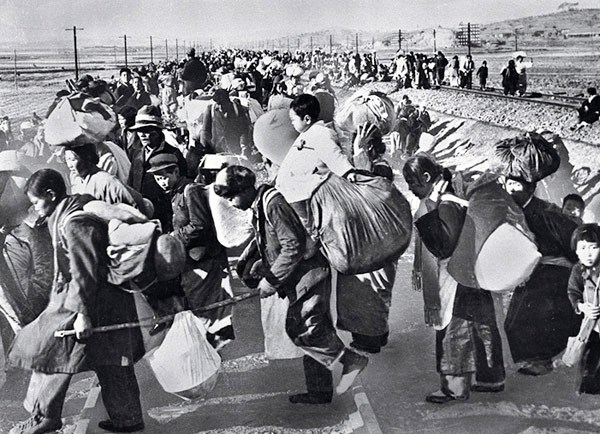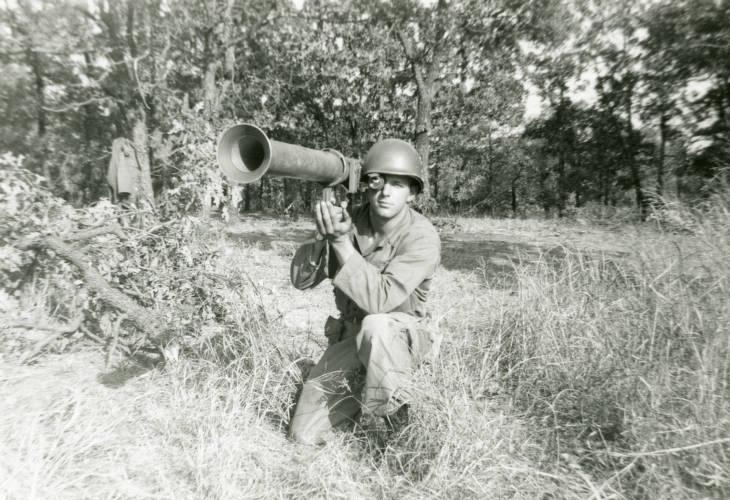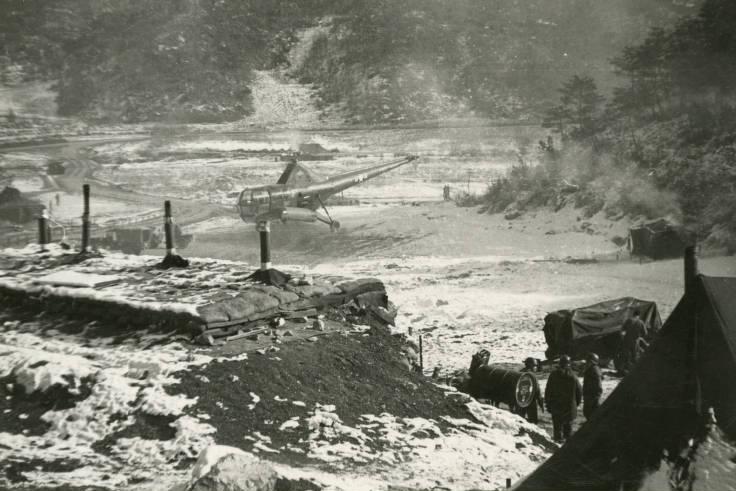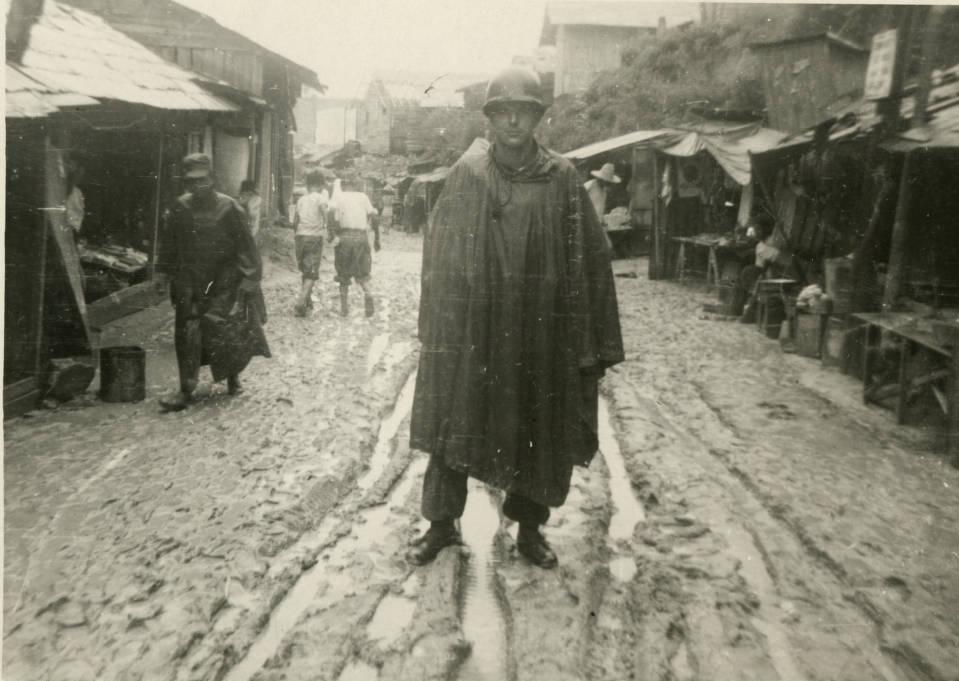When North Korea invaded South Korea in June 1950, and President Harry S. Truman committed United States armed forces under the authority of the United Nations (U.N.), Indianapolis eagerly joined the war effort. As many interpreted the invasion, including the , the lessons of recent history justified the call to arms.

But support for the war quickly took on partisan tones. At the Republican state convention in Indianapolis, U.S. Senator William E. Jenner urged Hoosiers not to shrink from their patriotic duty. Nevertheless, sounding themes that would intensify later in the war, the senator insisted upon the resignations of Truman and Secretary of State Dean Acheson because both men had forced the crisis. Local Democrats, however, praised Truman. Despite partisan differences, the U.N. force generally enjoyed support in the capital city.
The call-up of national guardsmen and reserves followed. The Indiana Air Guard mobilized and trained at Stout and Baer fields, but never deployed (See ). Mobilized and deployed but hardly trained, the 16th Marine Reserve Infantry Battalion suddenly, and disastrously, found itself under attack when the Chinese army entered the war in November 1950. Some members of the battalion had not fired weapons in recent training. Captain Robert M. Moore Jr., became the first of 171 casualties from Marion County. Posthumously awarded the Purple Heart, Moore was buried in .

Editorials in the Indianapolis News and Indianapolis Star reflected the city’s support for the U.N. during the early stages of the war. Many residents wrote letters praising Truman and calling for firm statesmanship rather than negotiation.
The public believed that the situation in Korea paralleled pre-World War II Europe and was adamant that the forces of democracy deal with aggression properly this time. As the city prepared for war, the papers ran editorials calling for patriotism over politics and denouncing greedy consumers who were buying and hoarding rubber products, canned goods, sugar, and other items that had been rationed during World War II. The city began a “Clothes for Korea” drive in 1951. Several local churches, most notably Brookside Evangelical United Brethren, contributed greatly and sponsored relief drives of their own.

In June 1953, Governor George Craig formed a statewide committee to aid suffering Koreans in compliance with a request from the American-Korean Foundation. The committee met at the Columbia Club and proclaimed an “Aid to Korea” week throughout the state to help raise funds.
China’s invasion and the U.N. forces’ retreat to the 38th parallel frustrated Indianapolis residents and diminished the patriotic optimism of June 1950. Truman’s “limited war,” based on his belief that Russia’s power in Europe posed a greater menace than China’s in Asia, found wide disfavor because it did not permit assaults on China proper, including the use of the atomic bomb.

The believed that U.N. Commander General Douglas MacArthur, not Truman, should decide whether or not to use the bomb. A local minister identified Moscow as the source of America’s agony and recommended bombing it. Occasional letters advocating peaceful negotiations with the Communists appeared in local papers, but most of the city believed that Truman and the U.N. should let MacArthur take the offensive and force communism out of Korea entirely.
The city’s feelings about the war changed after Truman removed MacArthur from command. On April 11, 1951, the conducted an unscientific random survey of public opinion about the president’s decision. Its interviews did not produce a single vote of sympathy for the president. Local residents viewed MacArthur as the only man who was willing to achieve victory in Korea.
With his dismissal, the city became disillusioned with, and eventually disinterested in, the war effort. Convinced that the U.N. and our allies would never let us win the war, the began calling for withdrawal from Korea. Editorials and letters demanded that American troops be sent home and that the U.N. enforce its policies without aid from the U.S. military. By 1952, editorials and letters concerning Korea had virtually disappeared from local newspapers.
The war’s end, in July 1953, brought mixed reactions in Indianapolis. There were no celebrations, and an survey showed that most people were glad that the fighting was over but felt that the truce would be only temporary.
Young men of draft age were particularly happy, some stating that they had been concerned about being drafted to serve a senseless cause. An editorial in the blasted the truce as a negotiated defeat and asserted that our government should boycott the U.N. as long as it recognized Red China as a member. The perceived failure of democratic forces in Korea left Indianapolis fearful of both the external and the internal threat of communism.
In 1996, Governor Evan Bayh dedicated the Indiana Korean War Memorial at the . The Indiana memorial for the was dedicated at the same time. Designed by the Indianapolis architect Patrick Brunner, the names of 997 Hoosier who died during the conflict are inscribed on the cylindrical sculpture.

Help improve this entry
Contribute information, offer corrections, suggest images.
You can also recommend new entries related to this topic.